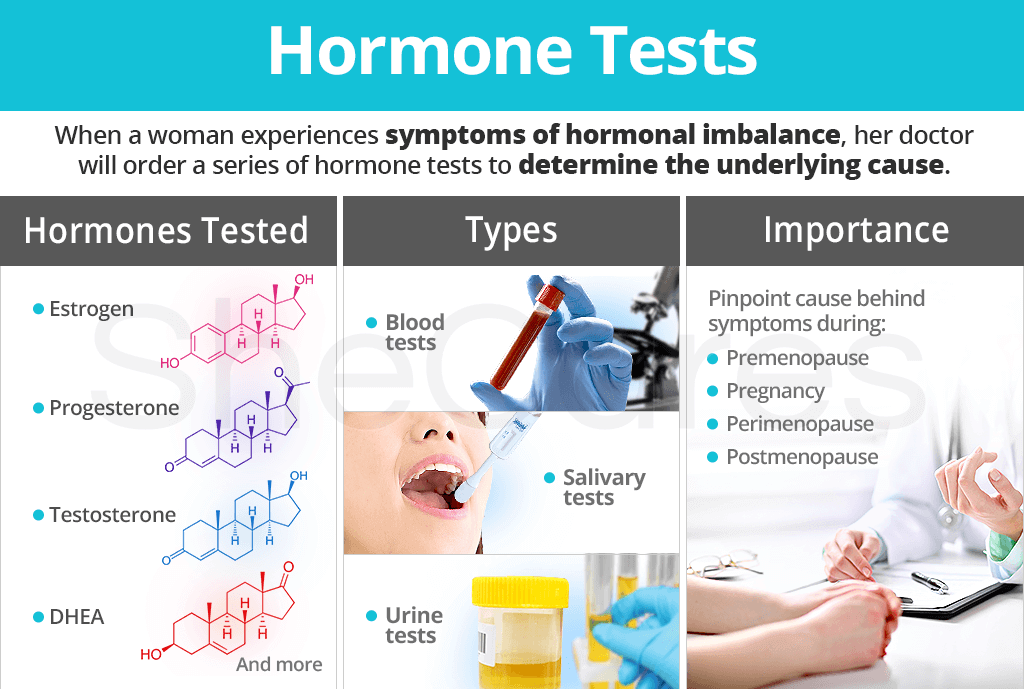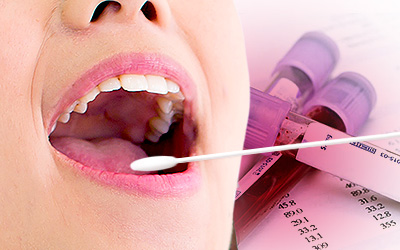One of the quickest and most surefire ways to ascertain a hormonal imbalance in the body is by taking a hormone test. Continue reading to learn all about hormonal imbalance tests, including how they work, what hormones can be tested, types of hormone tests available, and their importance throughout your reproductive life.
How Hormone Tests Work
In its essence, undergoing a hormone test is actually quite simple.
When women begin to experience symptoms, doctors will prescribe a series of hormone panel tests based on their reports in efforts to determine hormone levels and then pinpoint the underlying cause.
Once results are available, women will be able to discuss them with their doctors to determine the best line of treatment specific to her, based on health status and preference.
Hormones That Can Be Tested
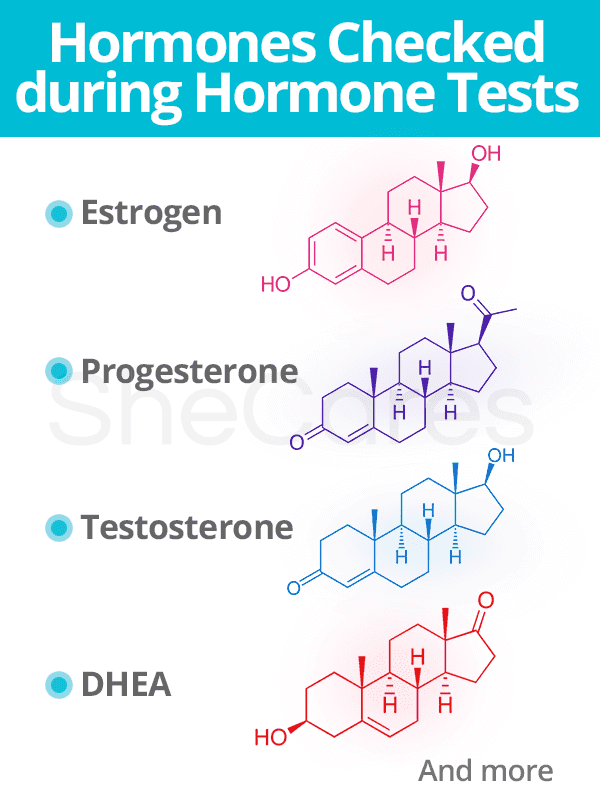
The most common ones tested in women as part of various hormone panels include:
- Estrogen
- Progesterone
- Testosterone
- Dehydroepiandrosterone (DHEA)
- Prolactin
- Luteinizing hormone (LH)
- Follicle-stimulating hormone (FSH)
- Thyroid hormones (T3, T4, TSH)
- Cortisol
Other hormones to be checked will be ordered as seen fit by your certified healthcare professional based on symptoms reported and medical history.
Types of Hormonal Imbalance Tests
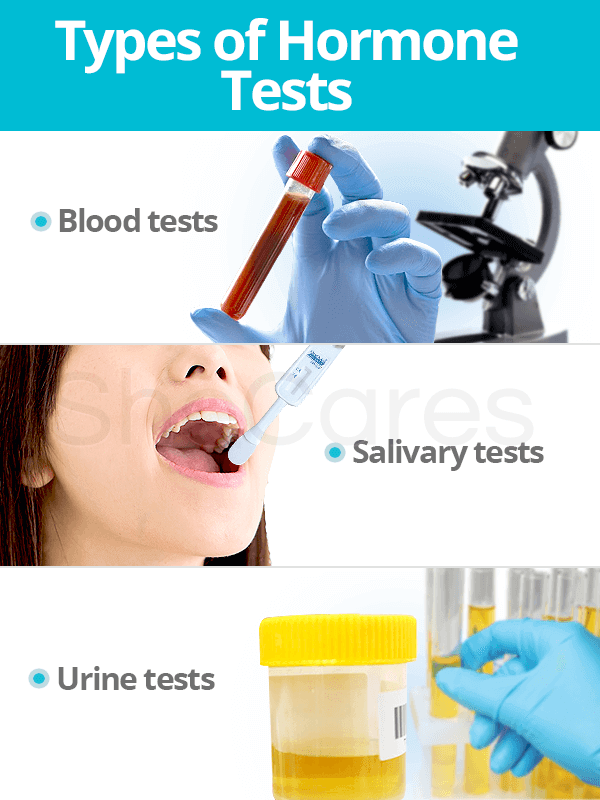
There are several tests from which to choose to determine what is happening within a woman's body:
Blood Tests
Blood tests to check hormone levels are one of the methods instilled by doctors to detect imbalances in women. Blood tests can measure free hormones (ones that are available for use in the body), bound hormone levels, or total hormone levels.
Salivary Tests
Saliva tests are considered one of the most accurate in identifying hormones available in the body. They are also praised for being a non-invasive, easy and convenient way of collecting multiple samples. Saliva tests are commonly used for measuring steroid, like estrogen, progesterone, testosterone, cortisol, and DHEA.1
Urine Tests
Urine hormones tests are another non-invasive way of collecting data about a woman's hormonal profile. However, because they measure metabolites, which are excreted hormone byproducts, results are considered not as conclusive. Urine is also widely susceptible to changes from foods, drinks, drugs, and other environmental contaminants.2
Importance of Hormonal Imbalance Tests
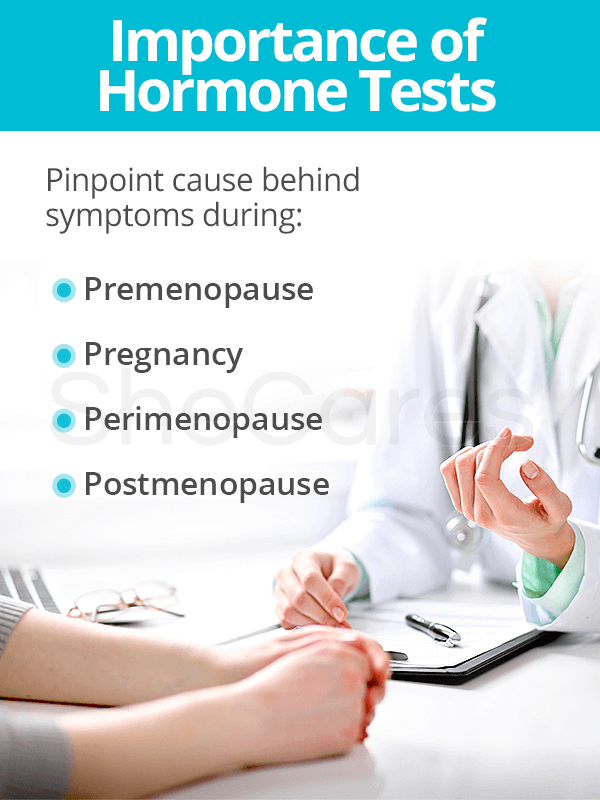
Hormonal imbalance tests help women pinpoint the cause of a variety of symptoms and disorders throughout the stages of their reproductive lives:
Premenopause
Some disorders that can plague women's menstruating years due to hormonal imbalance include polycystic ovary syndrome (PCOS), endometriosis, fibroids, and more. Symptoms most characteristic of an abnormality in the body include irregular periods, fatigue, acne, irritability, abdominal pain and cramps, painful sex, and more.
Pregnancy
Hormone level tests during preconception can help women tackle the underlying cause of infertility or ovulation problems. They are also used throughout the pregnancy to monitor fetal development and the overall well-being of both the aspiring mother and baby.
Perimenopause
Taking a female hormone blood test can help women and their practitioners determine if they have entered the menopausal transition, or if they should continue looking for a cause to their symptoms elsewhere, which can include mood swings, hot flashes, night sweats, vaginal dryness, difficulty concentrating, and many more.
Moreover, for those who are on hormone replacement therapy (HRT) or bioidentical hormone replacement therapy (BHRT) for symptom alleviation, hormone lab tests can determine treatment effectiveness.
Postmenopause
After women have reached their menopause date, their fertile years are officially over. During this time, afore-experienced menopause symptoms may continue, or new ones may arise. As such, hormone tests during postmenopause can help monitor levels and treatment results for symptom relief.
It is important to keep in mind that the aforementioned conditions and symptoms are just a sampling of the endocrine disorders that can arise.
No matter a woman's age, hormonal imbalance tests have proven useful in detecting other health conditions as well, such as thyroid and adrenal gland disorders, diabetes, and many more.
Considerations
It is important to keep in mind that hormone levels fluctuate daily. No one test can accurately represent the full picture. As such, many medical professionals may advise women to get tested more than once throughout the month – especially if still menstruating – for heightened accuracy.
Additionally, comparing levels to the normal range for a woman's age will help medical professionals evaluate where she should be.
Having outlined the different kinds of hormone tests available, read the next section to understand about different hormone levels.
Sources
- Cleveland Clinic. (n.d.). Sexual Hormone Disorders: Descriptions. Retrieved November 12, 2019, from https://my.clevelandclinic.org/health/diseases/17464-sexual-hormone-disorders-descriptions
- The North American Menopause Society. (n.d.). What is Hormone Testing? Retrieved November 12, 2019, from https://www.menopause.org/publications/clinical-practice-materials/bioidentical-hormone-therapy/what-is-hormone-testing-
- University of Rochester Medical Center. (n.d.). Free Testosterone. Retrieved November 12, 2019, from https://www.urmc.rochester.edu/encyclopedia/content.aspx?contenttypeid=167&contentid=testosterone_free
- Women in Balance Institute. (n.d.). Hormone Testing & Diagnostic Resources. Retrieved November 12, 2019, from https://womeninbalance.org/physician-resources/hormone-testing-diagnostic-resources/
Footnotes:
- Hofman, L.F. (2001). Human Saliva as a Diagnostic Specimen. The Journal of Nutrition, 131(5), 1621S-1625S. doi: 10.1093/jn/131.5.1621S
- Bouatra, S. et al. (2013). The Human Urine Metabolome. PLoS One, 8(9), e73076. doi: 10.1371/journal.pone.0073076
